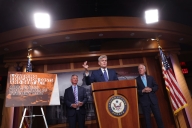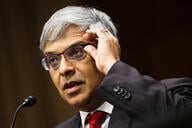You have /5 articles left.
Sign up for a free account or log in.
Wyoming Catholic College had planned to use a $10 million gift from an anonymous donor -- the largest in its history -- to fund a campus expansion before allegations of fraud levied against the college’s chief financial officer raised doubts about the origins and legality of the donation, the National Catholic Register reported.
The CFO, Paul McCown, resigned from Wyoming Catholic on June 25, three days after an investment firm filed a civil lawsuit against McCown accusing him of falsifying financial information to fraudulently obtain $15 million in loans. The lawsuit alleges that McCown disseminated the majority of the funds to family members and to Wyoming Catholic College.
“Most significantly, he transferred $10.5 million to an account in the name of ‘The Paul and Jacinta McCown Fund’ at ‘Goldman Sachs Philanthropy Fund,’ which he then directed to transfer $10 million as an ‘anonymous donation’ to the College, where (as noted) he is the Chief Financial Officer,” the lawsuit alleges.
Court documents do not list a lawyer for McCown, who could not be reached by Inside Higher Ed for comment. Wyoming Catholic College said in a July 7 statement that it “is cooperating with parties involved in the civil suit, and the funds are in the process of being returned.”
The college said a second employee named in the lawsuit has been placed on administrative leave.
“Over the past month, to experience such a profound breach of trust by a leader of our institution, has been both embarrassing and painful for Wyoming Catholic College,” the statement says. “However, an initial internal review by the College found no additional financial irregularities, and Wyoming Catholic College has neither been sued nor is a defendant to the suit.”
Wyoming Catholic’s president, Glenn Arbery, told the National Catholic Register that the incident does not threaten the institution’s financial stability.
“It is more a disappointment with respect to the future plans of the college than something that threatens our day-to-day operations,” he said.




